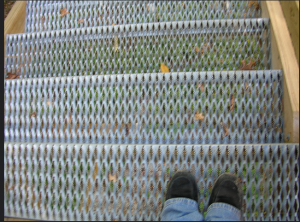We already know that Asian Americans have difficulty seeking a diagnosis and treatment for depression, but the problem is particularly dire among seniors. Data collated from various studies show that specific groups are at risk – particularly elderly women (who have a more than double suicide rate to that of white women); and elderly primary care patients (who have a more than double the suicidal ideation rate of African American patients of the same age).
Asian American male suicide rates also reach their peak in old age (at age 65 or older) and in general, Asian American elders have a considerable higher risk of suicide or suicide ideation, than Caucasians and African Americans. In this post, we discuss risk for factors for depression and suicide, suggesting ways to approach this problem.
What are Risk Factors Faced by American Asian Seniors?
Some of the most common reasons why the suicide rate is so high include having a serious mental disorder such as depression or bipolar disorder, substance abuse, physical illness, trauma, or a major life change, such as the loss of a spouse.
Specific barriers faced by elderly Asian Americans include language barriers, financial hardship, discrimination, cultural barriers, and social isolation. The biggest of all these risks is undoubtedly depression, which is currently the most prevalent mental condition faced by American seniors. For instance, almost 45% of Korean elders are currently battling depression, followed by 20% Japanese, and 18% Chinese in this age group, to name just a few.
Despite the statistics, stigma and fear of judgement and criticism often stop elders from seeking the help they need, or from sharing suicidal thoughts they may be having. Often, language barriers are the problem. Seniors may not be aware of available services, and may require bilingual services to fully report their problems.
What is the Solution for the Elderly?
Without a doubt, significant change must begin at a governmental level. More bilingual services should be made available to Asian American communities, in order to keep the elderly and their families aware of the importance of diagnosis and treatment.
Health checkups should not only concentrate on the physical. It is vital to realize that health conditions such as schizophrenia are closely linked to depression, so it is vital to check for the presence of a serious condition that needs to be addressed. Choice of treatments for schizophrenia and other serious disorders such as bipolarism include medication and cognitive behavioral therapy, which can go a long way towards battling associated depression and suicidal intentions. Research also indicates that exercise can help battle the cognitive dysfunction associated with this type of mental disorder.
Suggested Lifestyle Changes
Family members might consider suggesting that their elderly loved ones adopt important lifestyle changes such as consuming a healthy diet, obtaining a good night’s sleep, and taking part in mindfulness based activities such as yoga, Tai Chi and meditation, which numerous studies have shown to lower levels of stress hormones linked to anxiety and depression.
Simply being aware of the reticence of the elderly to seek help when they are depressed is key. In addition to advocating for greater mental health awareness and bilingual services for senior Asian Americans, families can also do their part to ensure their elderly loved ones receive a diagnosis and treatment when mental illness is suspected. Finally, it is vital that seniors be encouraged to adopt a healthy lifestyle that includes mindfulness based activities, which are known for boosting mental health.
AsAmNews has Asian America in its heart. We’re an all-volunteer effort of dedicated staff and interns. Check out our Facebook page and our Twitter feed, Please consider interning, joining our staff or submitting a story for consideration.



RE: High Rate of Depression among Asian American Seniors:The information is important in generating awareness of an important problem, but is rather simplistic given the cultural complexities involved. The studies mentioned do not seem to differentiate between seniors’ living arrangements, for example, whether they are living with family, or live alone, or have family. In conjunction with socio-economic and cultural factors, these impact Asian seniors’ mental health significantly, including how their present circumstances compare with culturally expected arrangements in old age.